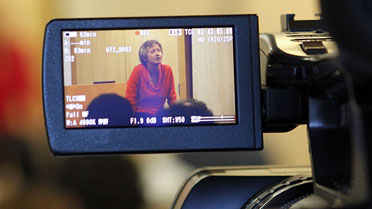This Storify documents tweets, links, photos and video posted during the 2013 STEPS Symposium, Credibility Across Cultures: expertise, uncertainty and the global politics of scientific advice, held in February 2013…
Storify: STEPS symposium 2013
STEPS SYMPOSIUM 2013 – VIDEOS
View all the video from our symposium “Credibility across cultures: expertise, uncertainty and the global politics of scientific advice”, which took place at Sussex University on 6-7 February 2013. Symposium…
STEPS Symposium 2013 – Speaker presentations
The 2013 STEPS Symposium, Credibility Across Cultures: expertise, uncertainty and the global politics of scientific advice, was held in February 2013 at the University of Sussex. Slides from the speakers…
From MDGs to SDGs: aspirations, evidence and diversity in setting global goals
By Adrian Ely, STEPS Centre Head of Impact and Engagement This week’s STEPS Centre Annual Symposium will be looking at the tensions between scientific advice and policy-making across international borders. I’ll…
Science policy, social media and skepticism
Science is Vital protest outside the Treasury, 2010 By Alice Bell, Research Fellow, SPRU – Science and Technology Policy Research The Royal Institution is up for sale. There are…
Credibility across cultures: expertise, uncertainty and the global politics of scientific advice, 6-7 February 2013, UK
Speakers include: Professors Anne Glover, Sir Robert Watson, Lidia Brito, David Spiegelhalter, Chris Whitty, Roger Pielke, Duncan Green and more. Tackling 21st century sustainability and development challenges requires the ‘best…
New Andy Stirling presentations
A collection of presentations recently given by STEPS co-director Andy Stirling on: civil society and the direction of innovation; the implications of uncertainty for science policy; knowledge and innovation implications for…
Herd it on the grapevine: how pastoralists get a raw deal in policy and the media
Mike Shanahan of IIED has written two great blog posts in two weeks on how pastoralism is viewed by politicians and by stories in the media. The first covers how…
Pandemic Influenza: Research themes
Outbreak policy narratives Public and policy reactions to H5N1 and H1N1 have been guided by the prospect of the devastating impacts of an outbreak. ‘Outbreak narratives’ have guided policymaking,…
Influencing the Rio+20 outcome document
By Melissa Leach The STEPS Centre submitted a position paper to the Rio+20 zero draft preparation process, in which we argued that science, technology and innovation have essential roles to play in…
